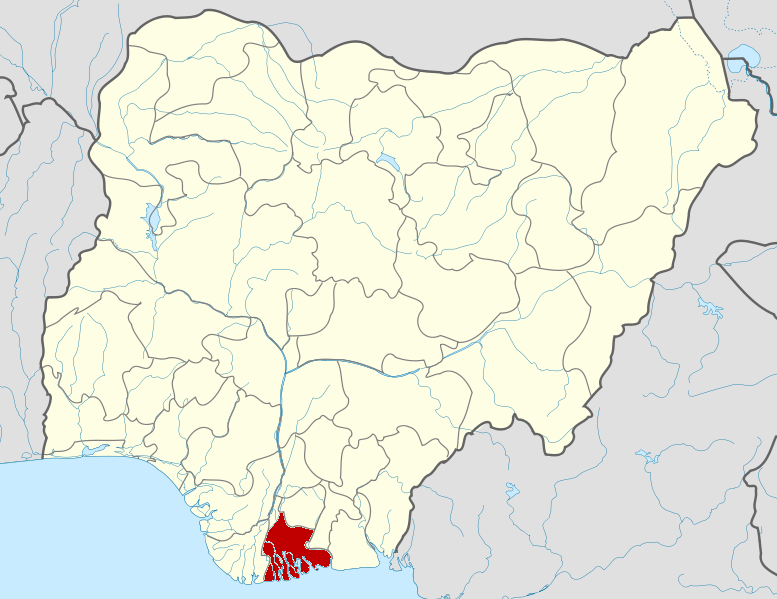Harcourt — Rivers state would be forty eight (48) this year. The economically virile state is one of the oldest states created by decree 19 of 1967. Initially called the Oil Rivers Protectorate by the British Colonial Administration because of its abundant reserve in both palm oil and later crude oil, Rivers State is blessed with great economic potentials but lacks political coherence, season after season.
Presently, Rivers offers Nigeria and the entire world crude oil and natural gas in abundance. There is therefore no doubt whatsoever that Rivers is supposed to be one of the most fast growing states in the country, and its rate of growth derives from its multi-billion dollar oil industry.
In Rivers State, Ogoniland is the most economically viable ethnic nationality in the state, far ahead of others. It has four local government areas endowed with great economic potentials. There are such institutions as a refinery, petrochemical industry, export free zone, deep sea water and thousands of companies dotting the economic space of Onne area and beyond.
Despite its sufficient wealth, Ogoni has never produced a governor in the history of the state. In the last electoral process, it was widely believed that the All Progressives Congress (APC) in the state would have magnanimity of nominating an Ogoni man as its governorship candidate. However, it turned out a huge surprise that Senator Magnus Abe, an Ogoni politician and associate of the state governor, Rotimi Amaechi, was by-passed for another riverine politician, Dakuku Peterside.
Incidentally, no sitting governor has been able to install a successor in the political history of the state. Looking at the Old Rivers state before the creation of Bayelsa State, the politics of the state has been dominated by the Ijaws both in the military and civilian administrations.
Between 1967 and 1975 ( i.e. 8 years) Navy Commander Alfred Diete-Spiff from the Ijaw-speaking area of the state, but now in Bayelsa, held sway as the first ever military administrator after its creation. It is important to note at this point that the eight years of Spiff as a MILAD satisfied the constitutional and democratic requirement of eight years of two terms each.
Chief Melford Aranyo Okilo was the next Ijaw and first civilian governor of the state between 1979 and 1983 (4 years) with late Eze Frank Eke as his deputy from the Upland bloc. It was at this point that the principle of political balance and equity came to play in the history of the state thereby giving the feeling of self-assurance and protection to all the tribes irrespective of size and economic endowment.
At the end of his four years, Okilo could not install his deputy, Eke, as a successor. This was mainly due to the fact that there was a curious incursion into the political process at that time by the military once again. That military action led to another period of interregnum and the country was dragged twenty years backward in democratic experiment.
It was not until 1992 when yet another Ijaw man from Okrika, Chief Rufus Ada George, who had Dr Peter Odili from Egbe/Egbema/Ndoni local government area, representing Rivers Upland, as his deputy. That administration was short-lived as it lasted for just one year before the military struck again for the umpteenth time.
Following the military eras of Lt Col. Dauda Musa Komo 1993-1998, Col. Musa Sheikh Shehu of 1998-1999 and that of Group Captain Sam Enwang of 1998-1999, there was a long period of military rule. It lasted that long until 1999 when Dr Peter Odili from the Upland was elected governor.
In the spirit of the principle of zoning or what many people will want to describe as a fair deal, Odili chose Sir Gabriel Toby from the riverine Opobo region as his deputy. Both leaders had a near perfect working relationship until they completed their constitutional eight years in 2007. There was any issue involving Odili and his deputy unlike what was trending then in the political history of Nigeria in other states.
Again, Odili failed to allow his deputy take over from him despite his political sagacity which also saw him making so much waves at the national level. The former governor was very close to grabbing the presidency but not for the conspiracy orchestrated by his best political friend and former President, Olusegun Obasanjo.
However, Odili came very close to installing his successor when he penciled down the major three political musketeers in his kitchen cabinet to select from. They were: Rotimi Amaechi who was then a speaker of the House of Assembly for eight years under Odili; Austin Opara, who was then deputy speaker in the House of Representatives and Dr Abiye Sekibo, secretary to the state government and later Transport Minister.
There was also Sir Celestine Omehia, Amaechi’s cousin who was an Adviser to Odili on Religious Matters. Too much attention was not paid on Omehia because nobody reckoned with him as an active politician like the above three.
The pendulum actually swung Amaechi’s way but he had Obasanjo to contend with. Obasanjo who was the leader of the PDP then shocked the Rivers people at the Liberation stadium in 2007 when he invented the K-Leg theory which has come to stay in the political lexicon of the state. Continue reading…

